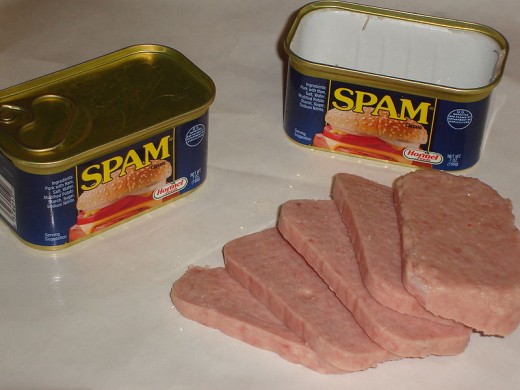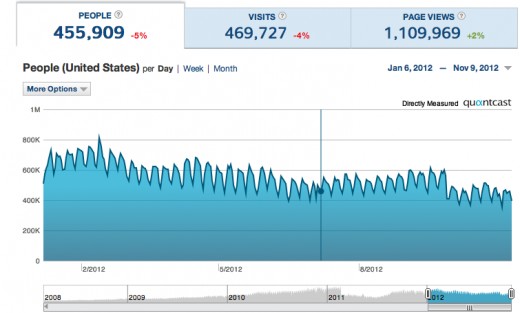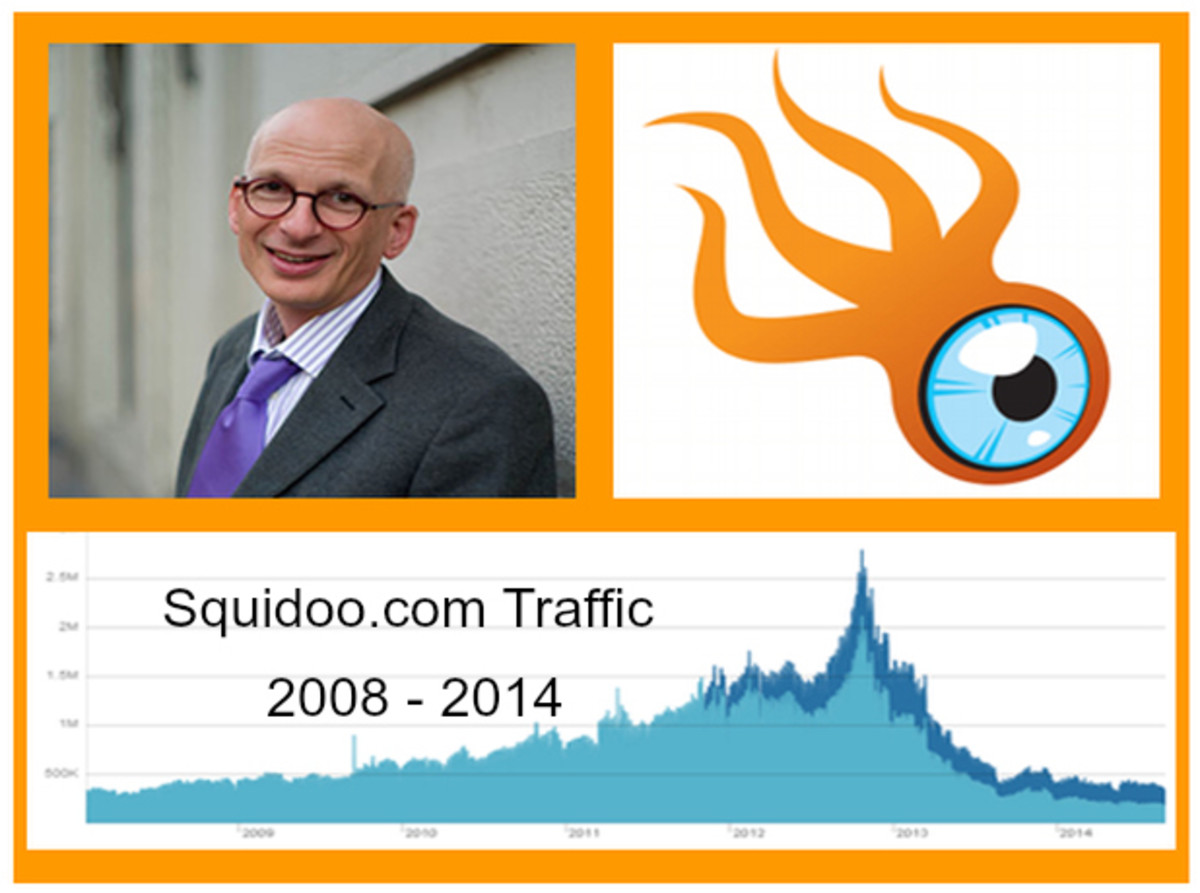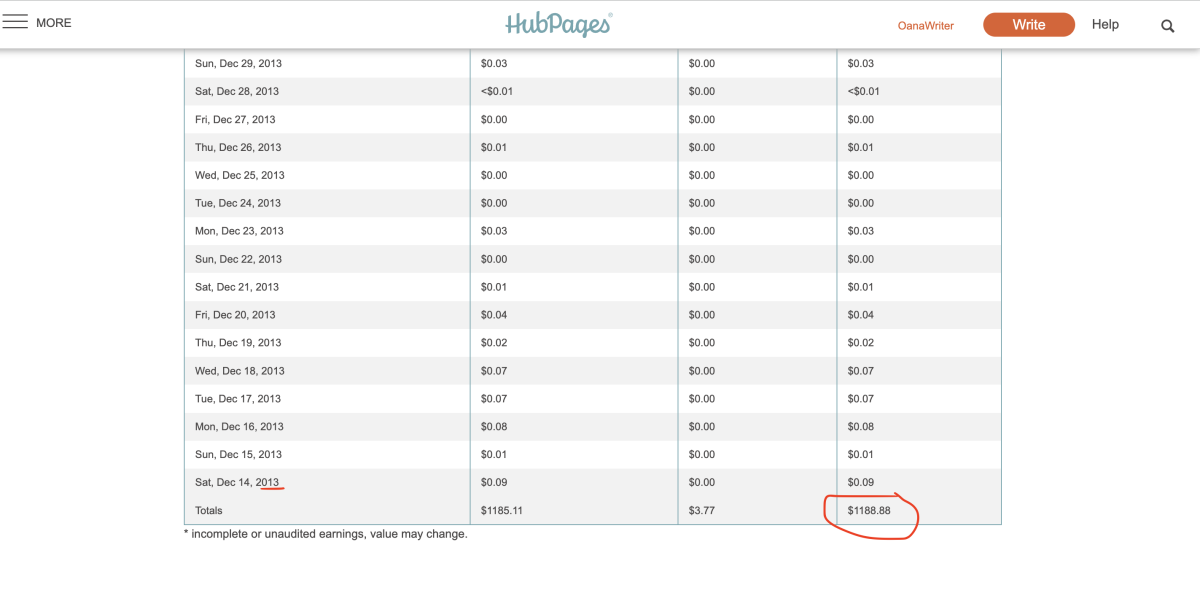Idled Hubs, the Good, the Bad and the Downright Ugly

Much Ado about Idle Hubs
The introduction of Idle hubs, at the end of August caused a storm of argument and speculation on HubPages forums, which is going on to this day. It is most unfortunate that, just as those who thought this could be a positive move, which would convince Google to lift the Panda curse, were waiting for the traffic to pick up, the site was slapped rather hard again by Panda the Twentieth of its Name. (Note to Mechanical Turk raters, this is not low quality writing, it is a humorous reference to Game of Thrones!)
This hub actually started as yet another post on one of the forum threads, but I ended up writing so much I decided to make a hub out of it. Incidentally I fully expect it to go idle eventually, I doubt it will attract much search engine traffic. But I’ve decided to indulge myself, yet again, and write something that is unlikely to earn in the long term.
The big point I'm going to discuss, is whether there is a way for HubPages to remove the low quality spam that is pulling the site down in Google's eyes, while sparing high quality articles that don't attract much traffic. I believe HubPages could easily implement its policy of no-indexing weak hubs, without the collateral damage of good quality writing.

The Problem is Spam, Spun Content and Other Species of Bad Writing
To be completely honest, the problem is low traffic, but I think the most obvious culprit for the low traffic is the low quality content on the site. Google certainly thinks HubPages as a whole is quite spammy, and it has let the staff know, through a message which Paul Edmondson disclosed in this hub. This is one of the standard warnings Google makes to webmasters who have seriously sinned, it talks about “low-quality pages on your site which do not provide substantially unique content or added value. Examples could include thin affiliate pages, doorway pages, automatically generated content, or copied content”. Significantly they advise Paul to submit the site for a reconsideration in SERPs once the bad content is removed. I believe reconsideration requests only work when Google has taken manual measures against a site, so I don’t think it is just Panda that is keeping our traffic low, actual people at Google decided that this site is spammy, and are applying the penalty.
I remember how shocked I was when as a newly minted hubber, I encountered many nonsense hubs on the hopper, that didn't make any sense at all. Obviously these were one of thousands of articles spun by a computer program from an original text, spread around the world to provide backlinks. You can understand that Google doesn't want to send its users to sites that have this kind of content.
Fact: Our Traffic is Falling
Of course the message from Google doesn’t necessarily imply that the subdomains are no longer working at isolating good hubbers from the spam. But if the subdomains were really independent, then you would expect some of them to be hit by a Panda update like panda-20, while others didn’t or even did better. From the forums it definitely seems like a lot of people’s traffic suffered at the same time, which suggests that no subdomain is an island.
It is possible that falling traffic is down to other factors, how much traffic a particular hub gets depends on the keyword choice, on-page SEO and writing ability of the writer and luck. But the platform one writes on matters too, and looking at the Quantcast graphs of HubPages traffic this year (see below) isn’t a very pleasant.
If a doctor sees a patient with an arrow in their chest, they will probably concentrate on removing the arrow, before checking out other possible causes for the patient's bad health. Therefore concentrating de-indexing the low quality content seems like a wise choice for HubPages, the problem is identifying all the spammy pages on the site.

New Policies to Remove Low Quality Hubs
So the idle hubs policy was introduced, with the aim to find low quality content and de-index it, copying Squidoo’s policy in which only the top 400,000 articles are indexed by Google, which might be the reason the tentacled site’s traffic survived all Google algorithms so far.
In addition the HubHopper, which allows writers on the site to 'hop' the newly published articles was revamped, each new article is now being rated according to several criteria. In a somewhat controversial move, the rating, which until then was done by hubbers on a voluntary basis was outsourced to Amazon's Mechanical Turk. This introduces a quality assessment process, so that weak hubs will never be featured on the site, and will have a no-index meta tag, which prevents Google from seeing them.
Incidentally very recently the terminology was changed. HubPages officially doesn't talk about "idle hubs" anymore, Hubs that are allowed to be indexed are now called "featured hubs".
Terminology
Does having "featured hubs" make you feel better than having "idled hubs"?
High Quality, Low Traffic Hubs are the Collateral Damage
Of course the problem is that a lot of perfectly good quality hubs are being, idled which is leading to a lot of frustration with the program, especially without any positive effects on traffic to the remaining featured hubs. When hubs are not featured, they are not only removed from Google’s index, but also lose their links from other hubs on the site, so they don’t get HubPages generated traffic. I had one decent quality hub, that didn’t rank very well in Google searches, it was on a pretty competitive topic. However it did use to get a trickle of traffic from related hubs on the site, that presumably did a better job of getting traffic from search engines. With the idling this hub, which really wasn’t spam or low quality, loses all traffic.
Whereas I think it is important to remove the low quality content from the site, and hopefully lift the Google curse, I really don’t see the point of removing good quality hubs that don’t get search engine traffic. There is nothing to suggest that Google objects to pages on a site that don’t get much traffic, they might be topics that get searched for very rarely, but when they do they will satisfy the searcher’s needs. Having these pages might not earn the site, or the hubber much money, but they are not actively hurting the site either. There might also be pages that sell expensive items, they might not get much traffic but when they convert, they make a lot of money.
Idling because of lack of traffic presents a special problem for seasonal pages, about a specific holiday or sporting event. My hub about queuing for Wimbledon tickets got very nice traffic in June, now it hardly gets a look, but I expect in the summer it will get a lot of views as the tennis championship approaches. It has not been idled yet, and HP staff have said that seasonal hubs do get special treatment, but I am worried. It is true that if it does get de-indexed I can easily bring it out of its slumber with a quick edit in May, but I think it might do better if it just stays in Google’s index permanently.
No-Index Hubs Poll
Do you like the policy of no-indexing "under performing hubs"

How to Differentiate Between Low Quality and Low Traffic?
For a while I did actually think that HubPages was doing something very clever with the idling program, don’t hold your breath, I was wrong. The problem with doing a quality check on newly published hubs is that although they prevent new spam from being published, they don’t do anything with the existing bad pages. On the other hand, putting all 1 million plus hubs through the hub hopper, might be rather expensive, and take a long time.
The interesting thing about the de-indexing program, is that a very minor edit to a hub would bring it out of sleep. The hub would undergo a 24 hour “pending” period, in which it would be quality assessed through the hub hopper, and if it passed that test it would be featured again. I was hoping that HubPages would be using this process to weed out the existing weak pages, while keeping the good but low quality pages on the site.
The scheme could work like this, pages that had low traffic from search engines would become idle. These would hopefully include all the spam and spun content, hopefully if Google objects to these hubs it doesn’t send them search engine traffic, as well as high quality pages that simply lost the battle for a high rank in Google SERPs, or where on topics that don’t get much search volume. Probably the majority of people who published spun pages just to get a backlink to their domain would not even notice this, many of the people who use HubPages for spamming are not active on the site. The peole who are active, and who care about having hubs featured would bring them out of this state with a quick edit, the edited hubs would then through the quality control system, and would be reinstated. If a bad hub got a minor edit, it would be marked as low quality during the pending process and it would not get featured. Hence the site would be cleansed, and would would bask in the glory of Google love again.

HubPages Wants High Traffic Hubs
However, this doesn't seem to be HubPages' intent. People had reported that hubs that they brought out of the idle status with an edit, revert to the idle state a few weeks later, unless they suddenly start seeing some traffic, which generally is not going to happen. I suspect HubPages feels that this policy might force people to do better keyword research and pay attention to on-page SEO so that the site, and its writers eventually benefit.
At the same time, I don't think you need tonnes of traffic from search engines for your hubs to remain "featured". From my experience, as long as you get a few hits a week, you will remain indexed. Other people claim that some of their hubs, which had some traffic became idled, or "not featured". It is possible that this depends on the age of the account and the hub, "younger hubs" are treated more leniently since it sometimes takes a while to rank well in Google search pages. I also suspect that some topics, perhaps SEO, losing weight etc. might have higher requirements. Possibly these topics are saturated on the site, and some culling of the weaker articles might be considered good.
From my point of view, the worst aspect of the whole program is that it hasn't worked yet! Two months after idle hubs were introduced, traffic is lower than it was in August. I would be perfectly happy to have some idle hubs, even though I don't think they are low quality, if my featured articles attracted more Google traffic. I know they have keywords that get searched for, I don't think they are inferior to the results on the first page of Google (although obviously I could have a very inflated idea about my writing skills), so I think they have the potential to attract far more views than they are doing.
I wonder if there was something wrong with the initial no-indexing of idle hubs. In August the site had 4.7 million pages in Google's index. Soon after the policy was introduced this went down to about 3.5 million, but last month I was really shocked to see that Google was saying it had 5 million pages from HubPages indexed! A few days ago the number was 3 million, but now if you put site:hubpages.com into the search box, it says there are 5.4 million pages indexed! Either this is not a reliable method for checking on the index status, or something very wrong is going on. Surely such jumps are not good!








